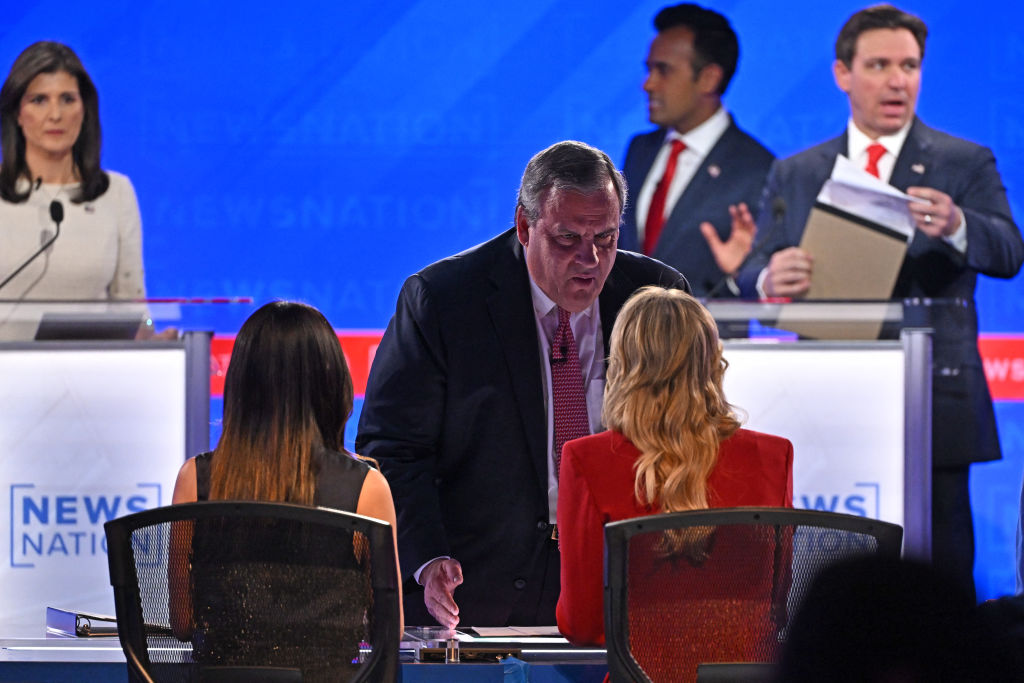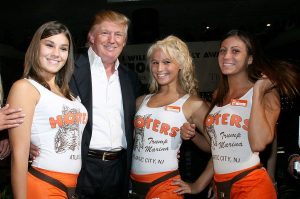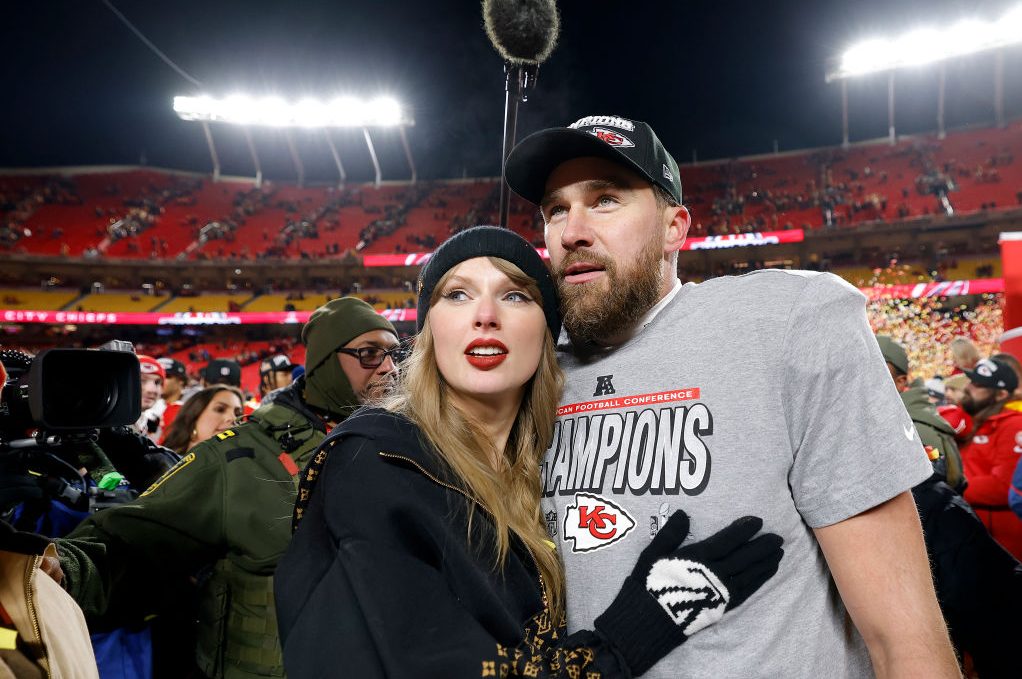Welcome to the first Thunderdome of 2024! I hope you had a great time off and congratulations to all of you chipper Ned Flanders types who’ve already filed your taxes. And also to those of you who are still in full recovery mode, having “Stayed up so late, attempted — quite unsuccessfully — to love all of our relatives, and in general, grossly overestimated our powers.”
In any case, the year of 2023 is gone, and now our presidential election year is truly begun… and with it, a contest that is forcibly nonexistent on one side of the aisle, and on the other, one that has been drowned in its infancy. Why is that? The guys will discuss it next week when the Thunderdome podcast returns, but in the meantime, a few regrets come to mind for each of those who sought to challenge Donald Trump for the Republican nomination.
Ron DeSantis: hiring Jeff Roe. The choice of the seasoned consultant to be the top advisor for the Never Back Down super PAC was initially hailed in March of last year as a canny move by media observers for three reasons. First, it gave DeSantis a prominent Florida outsider to guide his notoriously close-knit operation; second, it sent the clear message that Glenn Youngkin, Roe’s former client, was not considering jumping into the race; and third, Roe’s tenure with the Ted Cruz campaign in 2016 was credited with leading to victory in Iowa with the kind of ruthless tactics DeSantis would need to deploy to have a chance of an early win.
Instead of delivering on these hopes, Roe resigned from the super PAC in December, less than a month ahead of the Iowa caucuses, leading to much gleeful chortling from his rivals in the Trump camp. It’s likely unfair to blame Roe for every misstep the DeSantis campaign made to this point — there was clearly enough dysfunction to go around in that organization. But his tenure was marked by massive internal squabbling over expenditures and choices that took the candidate who looked like the biggest threat to Donald Trump from being sixteen points behind the former president the month he was hired to being fifty-one points down today. No consultant wants that on his resume.
;768:[300×250,336×280,320×100];0:[300×250,320×100,320×50]”]Nikki Haley: not making a better case for early money. How much different the Haley 2024 campaign would look today if she had successfully lobbied for the backing she’s now getting from top donors earlier in the cycle? At this late stage in the game, that cash flow can’t accomplish nearly as much as it could in building out her organization earlier in the contest. A big aspect of that would have to include lobbying to keep Tim Scott out of the race; his presence prompted hesitation from the Capitol Hill focused set, and a more capable politician would’ve found a way to remove that obstacle to her success before it slowed everything down. For Scott’s part, his own run didn’t help his stature at all, and might have hurt it — Haley needed to make that case earlier, and her situation now could be much stronger.
Vivek Ramaswamy: burning popularity to no particular end. In the summer, a series of pieces focused on the surprising success of Vivek touched on his broad-based appeal to multiple factions in the Republican Party. That was before the debates began, and he turned in performances that burned through his popularity as he needled other candidates and came across as a surrogate for Trump. For someone with murky political ambitions, Ramaswamy emerges from this cycle as someone who dramatically increased their negatives — and for what? He likely could’ve gotten whatever he wants without the pettiness and pussyfooting with radicalism. Did he really need to have Alex Jones on his podcast?
Mike Pence: Running. The former vice president had to see the writing on the wall: he was going nowhere this cycle, and the appetite for his old school form of polite socially conservative Republicanism is at its nadir. So why not take a breath and reset? Watching him on the debate stage, you get the feeling Pence just wanted to be there to debunk the claims of others about January 6 and the like. But he didn’t need to run for president to do that. Now, his path back to political relevance seems that much steeper.
Mike Pompeo: Not running. If there’s one potential candidate who has to regret not jumping into the 2024 contest seeing the way it played out, it’s not any of the donor-pushed governors — Youngkin, Brian Kemp or Chris Sununu. It’s Mike Pompeo. The issue priorities today in the Republican Party plays almost entirely to his benefit, he has the foreign policy chops on Israel and Ukraine to dwarf anyone else on the stage, and he became infamous during his tenure for advocating a far more aggressive stance toward the Mexican cartels. He has conservative bona fides without being caught in DeSantis’s culture war maelstrom, and Haley’s rise on foreign policy subjects has been almost by default as the only candidate with such work on her resume. It’s hard to see how Pompeo wouldn’t be in the top three candidates were he in the race today.
Chris Christie: I regret nothing. And not just because this would be his answer. He was never running to win, he was running to reestablish his position as a prominent critic of the GOP, and he’s done exactly that.
;768:[300×250,336×280,320×100];0:[300×250,320×100,320×50]”]Doug Burgum: That pick-up basketball game. Self explanatory.
It’s always January 6 somewhere
Surprising no one, even after blowing millions on ads pushing “Bidenomics,” the Biden 2024 campaign’s plan is a re-do of 2022: January 6 as the new Charlottesville, white supremacy and democracy on the ballot, presumably with a smattering of abortion. Axios reports:
In a speech at Valley Forge, Pa., on Friday, Biden will make clear that reminders of the Capitol riot and Trump’s push to overturn the 2020 election will be constant themes in his 2024 campaign.
Senior campaign officials say that the venue is apt as it is where George Washington’s army endured a frigid winter in 1777-1778 before uniting his army and fighting for democracy and freedom against the British — Biden will try to rally his party for a fight against “MAGA extremism.”
Senior campaign officials also say Washington offers a contrast with Trump as he peacefully and voluntarily stepped down from power after his time in office.
Biden will speak again about the Jan. 6 riot on Monday at the Mother Emanuel AME Church in Charleston, S.C. — a Black church where a white supremacist murdered nine people in 2015.
Biden will try to cast the November election as not just about large policy differences — but as an existential threat to the republic with Trump likely to be on the ballot.
In a call previewing the speeches, Biden campaign manager Julie Chávez Rodríguez told reporters: “We are running a campaign like the fate of our democracy depends on it. Because it does.”
The general impression is that Nikki Haley is sliding into second place. And with that comes more pressure for her to take on the guy in first, something she’s been reluctant to do to this point:
Haley has spent most of her campaign walking a fine line when it comes to Trump, alternating between opposing and praising him as she aims to appeal to both “Never Trump” Republicans and those who are open to the idea of voting for him again.
But with her latest broadsides against Trump, Haley is opening a new front in a primary long defined by lower-polling rivals’ reluctance to engage directly with the former president. And she’s doing so at a crucial moment in New Hampshire, where large numbers of more moderate Republicans and independents who can vote in the GOP primary are just starting to tune in…
Haley has a long history of switching positions on Trump. She opposed his 2016 bid for the Republican nomination and then went on to work in his administration as UN ambassador. She condemned Trump in the aftermath of the Jan. 6, 2021, US Capitol riot, but later declared that conservatives “need him” in the GOP. She vowed not to run against him in 2024, and then did.
And for much of her campaign, Haley has sought to have it both ways on Trump, calling him the “right president at the right time,” while also saying “chaos follows him” and the country “won’t survive” another four years of it.
But the stakes are changing for Haley, who, with the support of the state’s popular governor, Chris Sununu, has been rising in recent polls in New Hampshire. And Trump and his allies have taken notice. The pro-Trump super PAC MAGA Inc. launched an ad in the Granite State in mid-December accusing Haley of flip-flopping on her support for a gas tax as governor of South Carolina by splicing together clips from various speeches she gave. “New Hampshire can’t afford Nikki ‘High Tax’ Haley,” the narrator says in the spot that the PAC has put more than $2 million behind, according to the ad tracking firm AdImpact.
At first, Haley brushed the attack aside in a post on X as Trump “getting nervous.” But as the ad kept airing, Haley has started to address it, unprompted, on the stump — accusing Trump and his allies of spreading falsehoods about her stance on the tax in four separate appearances in New Hampshire over two days.
“I have seen the commercials you see. I’ve seen the little temper tantrums that he’s thrown,” Haley told a crowd of several hundred people packed into a sports bar in Londonderry on Wednesday. “And let me tell you this: There’s not one bit of it that’s truthful. I never once signed or would have signed a tax increase in South Carolina.”
One more thing
One candidate who got a late Christmas gift: RFK Jr., who is now officially on the ballot as an Independent candidate in the state of Utah. This may not seem that important on its surface — Utah has just six electoral votes — but in 2016, Donald Trump only got about 45 percent of the vote in the state with a third-party candidate on the ticket. In 2020, he prevailed with 58 percent without a third party candidate. In a race likely to be a down to the wire close contest, RFK’s presence on even a handful of ballots could be a factor that leads to significant disruption. Next stop, Arizona…
;768:[300×250,336×280,320×100];0:[300×250,320×100,320×50]”]

























Leave a Reply